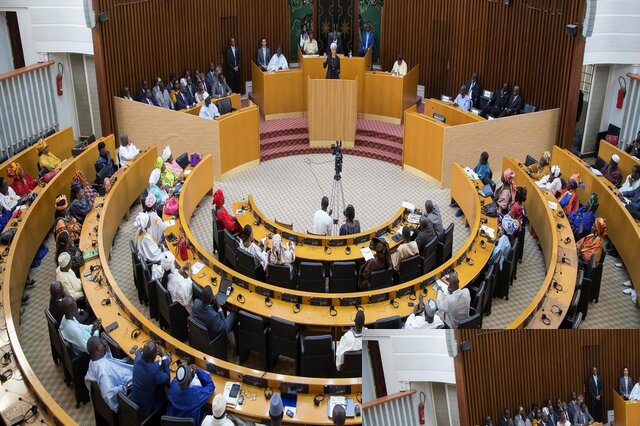
Benin’s National Assembly convened in a pivotal plenary session on Friday under the leadership of Speaker Louis Gbèhounou Vlavlonou, adopting major legislative reforms and granting authorization for the ratification of two significant international agreements related to environmental protection and sustainable development.
The five-point agenda, reviewed by the Committee on Laws, Administration, and Human Rights—chaired by Hon. Orden Alladatin—reflected the growing emphasis on green policy and legal modernization within Benin’s governance framework.
Minister of Justice and Legislation Yvon Détchénou represented the government during the session, providing detailed context for each measure.
A highlight of the deliberations was the ratification of the international agreement signed in Rio de Janeiro on June 20, 2012, which formally establishes the Global Green Growth Institute (GGGI), an intergovernmental organization headquartered in Seoul, South Korea.
Minister Détchénou underscored the strategic value of Benin’s participation in the GGGI, noting its alignment with the country’s long-term commitment to environmental sustainability, climate resilience, and inclusive economic growth.
In addition to international treaties, lawmakers gave final approval to amendments to the Code of Criminal Procedure during its second reading.
The revised code is expected to bolster the efficiency and transparency of Benin’s justice system, strengthening due process and aligning legal standards with contemporary human rights norms.
The Assembly also voted in favor of amending the law governing Beninese nationality for Afro-descendants, reflecting the government’s intent to foster stronger ties with the African diaspora.
The updated legislation is designed to ease pathways to nationality for individuals of African descent seeking to reconnect with their ancestral homeland.
This comprehensive session marks a significant step in Benin’s legislative evolution, showcasing the country’s drive to harmonize legal and environmental frameworks with global standards while embracing a more inclusive national identity.



